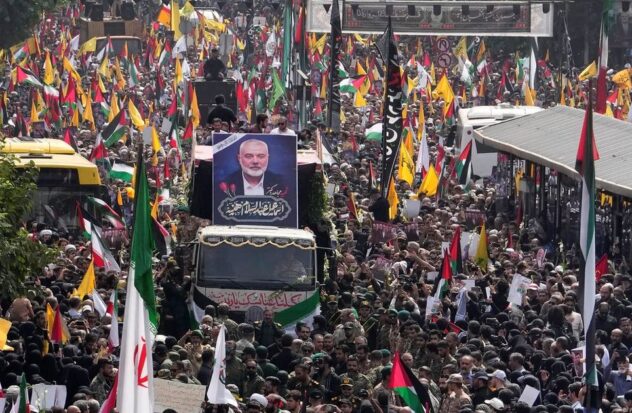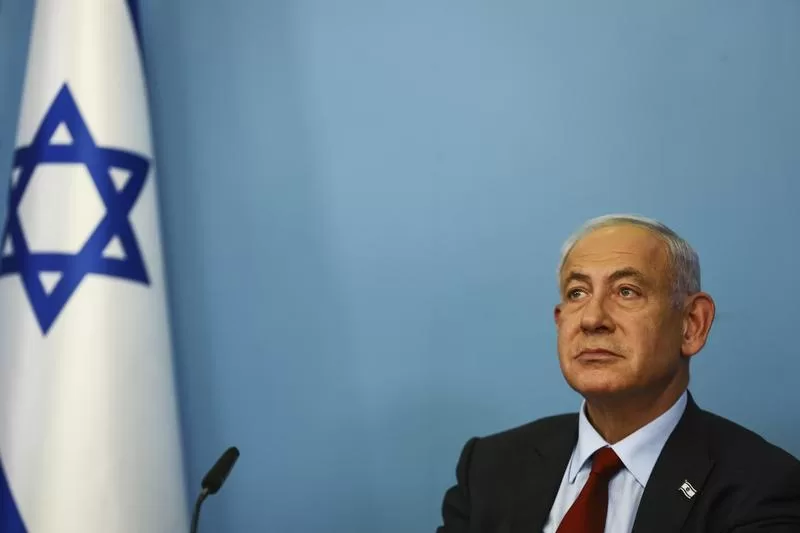BEIRUT — The leader of the Hezbollah terror group warned Thursday that the conflict with Israel has entered a “new phase,” as he addressed mourners at the funeral of a Hezbollah commander killed in an Israeli airstrike this week in Beirut.
Meanwhile, in Tehran, Iran’s supreme leader prayed over the body of Hamas’ political leader, killed in an alleged Israeli operation.
Both deaths have raised fears of an escalation into all-out war, leaving the region waiting to see how Iran and its ally Hezbollah will respond. Iran has vowed to take revenge on Israel for the attack that killed Ismail Haniyeb on Wednesday in the capital Tehran.
Israel has not claimed responsibility for Haniyeh’s death. Israeli military spokesman Rear Admiral Daniel Hagari said “there was no additional airstrike, not one Israeli missile or drone, in the entire Middle East that night,” he said Thursday.
But Israel has admitted to carrying out Tuesday’s attack in Beirut that killed Hezbollah commander Fouad Shukur along with an Iranian military adviser. Israel has stressed that Shukur was behind a missile attack days earlier that hit a soccer field in the Israeli-controlled Golan Heights that killed 12 children. Hezbollah has distanced itself from the attack.
In a speech via video link sent to mourners gathered with Shukur’s coffin in an auditorium in a Beirut suburb, Hezbollah leader Hassan Nasrallah said “We… have entered a new phase distinct from the previous period.”
“Do you expect Hajj Ismail Haniyeh to be killed in Iran, and for Iran to remain silent?” he said, referring to the Israelis.
But as he often does, Nasrallah spoke in vague terms, promising “well-thought-out retaliation” without saying what form it would take. He said only that Israel “must expect the wrath of the honorable people of the region.”
“The enemy and whoever is behind the enemy will have to wait for our imminent response,” he said, an apparent reference to Israel’s main ally, the United States.
International officials have struggled to prevent a cycle of retaliation before it escalates into a full-scale war. Since the Gaza war began in October, Hezbollah has attacked Israel almost daily across its borders, resulting in deaths and the evacuation of tens of thousands of people. Israel has responded to the attacks. But so far the exchanges of attacks have remained within certain limits.
On several occasions, attacks that appeared to have crossed red lines raised fears of an acceleration toward all-out war, but foreign diplomacy has held both sides back. Hezbollah faces intense pressure not to drag Lebanon into a repeat of the militant group’s 2006 war with Israel that left many dead and destroyed.
Source: With information from AP


